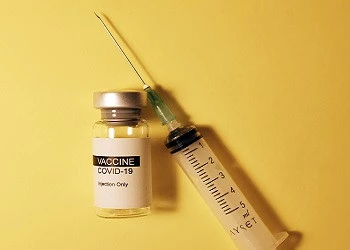The power of digital communication and education to impact clinical behavior
Discover how digital education is an effective option for positive clinical behavior change in physicians in this collaborative study by the FDA and Medscape
Add bookmark
The world of medical education has changed. With unprecedented impact on the medical education industry due to Covid-19, clinicians have shifted to digital learning solutions, such as digital webinars and discussion groups to stay current for practice. Clinicians expect to lean into digital more than ever, now and in the future, with 78 per cent of European physicians agreeing in a Medscape survey that online learning is currently more important that it was previously.
It is important that the digital learning tools that clinicians’ access is trusted, accurate, and effective. Medscape Education, in collaboration with the US Food and Drug Administration (FDA), published a study entitled FDA collaboration to improve safe use of fluoroquinolone antibiotics to highlight how digital education and multi-platform communication had a positive effect on the future of clinical education and physician behavior.
The history of fluoroquinolones
In 2016, data became increasingly available on the safety profile of fluoroquinolone antibiotics, specifically around inappropriate use as a first-line therapy which raised concern of potential harm to patients.
The authors of the Medscape Education and FDA study found fluoroquinolones are the third-most commonly prescribed class of antibiotics in an outpatient setting in the US and the most commonly prescribed in hospitals. Further analysis from the study showed that five per cent of all fluoroquinolone prescriptions in the US were given when antibiotics were not indicated, and 20 per cent were given for conditions where fluoroquinolones were not the recommended first-line treatment.
As a result, the FDA updated the black boxed warning for fluoroquinolones in July 2016 to note that the risks generally outweigh the benefits for patients with certain conditions and expressed interest, through the FDA Safe Use Initiative, in studying the impact of communications on drug safety.
Medscape proposed an ex post facto matched control study designed to investigate the effects of feedback and education on high-volume prescribers of fluoroquinolones. The study tested three communication approaches: targeted short-form messaging, a continuing medical education (CME) activity and both options in combination.
Medscape and the FDA collaborative research
A target audience of more than 23,000 high-volume fluoroquinolone prescribers who were also Medscape members were identified which included physicians, nurse practitioners and physician assistants. This target audience wrote 7.3 million fluoroquinolone prescriptions over the 12-month period of September 2014 through to August 2015. Ultimately, a target group of more than 23,000 (11,774 participants and 11,774 control group) were part of the study.
Medscape, in collaboration with the FDA’s Center for Drug Evaluation and Research, developed the targeted short-form messages that participants would receive. The three targeted short-form messages with the highest engagement were used in the full intervention and included a link to an online educational (non-CME) resource center highlighting key messages and clinical data on fluoroquinolone prescribing.
In phase two of the study, an online CME activity entitled Improving the safe use of fluoroquinolone antibiotics was developed in collaboration with the FDA. It provided a review of scientific advances in fluoroquinolone prescribing and its content was driven by an educational needs assessment.
The results
The study examined three groups of clinicians along with a control group (n = 11,774) to evaluate and measure the effectiveness of communication with an education methodology:
- Group one - Received short-form targeted messaging only (n = 8895)
- Group two - Received CME activity only (n = 1756)
- Group three - Received both short-form targeted messaging and CME (n = 1123)
The results of the activity were statistically significant in the following approaches:
| Tactic/message | Test cohort (n) | New prescriptions volume percentage difference when compared with control |
P value |
| All tactics | Total (n = 11,774) | -10.3% | P < .0001 |
| Short-form message | Total (n = 8895) | -8.5% | P < .0001 |
| CME | CME-only participants (n = 1756) | -12.3% | P = .0004 |
| CME and short-form message | Total (n = 1123) | -21.7% | P < .0001 |
The conclusions of this study showed that Medscape digital CME (with and without targeted short-form messaging) is effective in favorably impacting clinical behavior.
In the new world of Covid-19, digital education is more important than ever and proven education is vital. Medscape Education has been a provider of digital CME for more than 25 years and has committed to providing timely, trusted and practice-relevant education and resources for clinicians.
To read the full study by Medscape Education and the FDA, visit pharmacypractice.org.


























